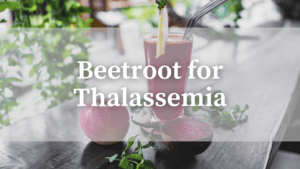Honey is one of the tastiest and healthiest foods that one can eat. And it is something you will find in every kitchen. But there are so many different products available to choose from these days, that it becomes difficult (if not impossible) to find the right one. Store shelves are stacked with organic, unfiltered, raw, manuka, pure, spreadable, floral, wildflower, light, and many other types.
But unfortunately, a lot of these products on store shelves are fake, counterfeit, or adulterated in some way.
Did you know? Honey is the thirst most adulterated or faked food behind Milk and Olive Oil (according to the US Pharmacopeia Food Fraud Database).
And, what’s the point of buying honey if it’s just sugar water mixed with corn syrup or treated to the extent that it loses its potency?
“Which honey is pure?”, “Which honey is the best?”, “Which color honey should I buy?”, “Which brand has real honey?”, “Is there a difference between pure and raw honey?”, “Should I go for raw honey or organic honey?’, “Where can I buy real honey?”, “Is local honey better than the store-bought one?”
You probably have these questions in your mind if you are looking for good honey for yourself and your family.
So I did some research on how to find the best and healthiest honey. If you are looking to buy pure honey that even the bees are proud of, here are my recommendations:
- Choose raw and unfiltered honey
- Choose locally farmed honey
- Choose darker shades of honey (they are high in antioxidants)
Raw & Unfiltered Honey
Most commercially available honey goes through the process of filtration and pasteurization where it is heated to a certain temperature to increase its shelf life and make it more “marketable”. This process destroys the goodness of honey. It destroys everything that is unique to honey as the enzymes and the nutrients that are found naturally in honey cannot survive the heat.
You end up with honey that may appear to be better in color and texture but it has lost most of its nutritional value that makes it awesome. You may think you are buying raw and pure honey but it isn’t what it appears to be.
Raw honey, on the other hand, is not pasteurized, filtered, or treated in any way that would destroy any of its natural characteristics and nutritional value. It is bottled and sold as the bees make it giving you the health benefits you are looking for.
Now the question is, should you be looking for Organic Honey?
The answer is no. It’s really hard to find 100% organic honey because there are no standards or regulations in place to verify if a product labeled organic is actually organic or not. So there is a high chance that it’s going to be unnecessarily overpriced and it’s better to just stick with regular honey.
The only time you should go for organic is when the honey you are buying is traceable and you know exactly where it was farmed. That way you can at least verify the claim.
Locally Farmed Honey
When you choose to buy from local farmers, you are supporting your local environment. The best thing about local farmers and producers is their physical presence as well as accountability to the local law. You can contact them, speak to them, and ask them questions. Some may even give you samples to try out. And if you get connected to a farmer or producer, you know for SURE where your honey is coming from and what it goes through before reaching your plate.
This is not the case when you buy honey from a big store or from a commercial producer. You never know what you are eating because that honey has been imported from one country, bottled in another country, and farmed in an entirely different country.
It isn’t traceable! And that’s how honey is laundered! You heard that right, honey laundering is a real thing! Google “Honeygate”.
Don’t favor imports and try to buy as much as you can from your local farmer’s market. You can even buy from Amazon but preferably go for a locally farmed product. That way you at least have a face behind the product.
Did you know that research commissioned by Food Safety News in 2011 found an estimated 76% of the Honey in American supermarkets and stores to be fake?
Darker Honey is Healthier
Honey is available from light to dark shades. So which color should you pick? Does the color even matter?
This research says that darker honey has higher values of antioxidants. Antioxidants fight the free radicals in our bodies and strengthen our immunity by saving our organs from oxidative stress.
So preferably go for darker shades of honey if you are looking for the extra healthy option. They have a rich flavor and smell, if you are switching from filtered and treated honey to raw honey, it might take some time for you to get used to the taste. But it will be worth it. Filtered and pasteurized honey just do not have the health benefits and nutrition you get from real, pure honey. It’s just not how the bees would want us to have it.
Another thing to look out for is the texture of the honey.
Don’t go for clean, clear honey.
Pure honey has pollen which makes it cloudy, textured, and viscous. If the honey is absolutely clear, there is a good chance that it was heated or treated.
If you prefer a milder taste, you can go for a lighter shade of honey.
But keep in mind, it may not have the same health benefits as a darker one.
Personally, I love honey with a dark color and a little bit of taste. My favorite has to be Sidr Honey.
I have been taking honey and black seed oil regularly for many years now due to my blood disorder (Thalassemia Major) and I think honey has been really helpful in keeping my immunity up and also in improving hemoglobin levels.
Conclusion
Honey is one of nature’s best food and medicine. The whole world has been using it for centuries. Unfortunately, it has become a highly commercialized product and hence it’s becoming harder and harder to find quality honey. Most of the products on store shelves are either fake or adulterated.
If you want raw and pure honey, don’t go for products that look clear and untextured. Pure, raw honey is supposed to be cloudy, textured, and viscous.
The best way to get pure honey is to buy it directly from a local farm or the farmer’s market. If you don’t have access to a local farm or are not being able to find one, I would recommend you buy Nature Nate’s Pure, Raw and Unfiltered Honey (affiliate link). It’s quite affordable and a great option for daily use.
Or if you are really looking to use honey as medicine as I do, go for Manuka Honey (affiliate link). It is expensive, but you can be sure it’s the real thing. It’s certified and all jars are completely traceable back to the hive they came from. If you want the best honey for your health, this is it.
Don’t be fooled by fakes.
FAQs
Should I buy raw honey or pure honey?
Go for raw honey if you want the real benefits of honey.
Raw honey is unfiltered and not pasteurized making it 100% natural. It is packaged directly after extraction without any processing.
Pure honey on the hand is processed and cleaned before it is packaged, giving it a cleaner more appetizing appearance, but it may end up losing some of its natural properties.
How can we check pure honey at home?
The easiest way to test is to put a drop of your honey in a spoon and then dip the tip of a matchstick in it.
Now try to light the matchstick. If the honey is real, the matchstick will light up as real honey has low moisture content.
However, you should keep in mind that it’s very difficult to check if honey is pure or not. Your best bet is to buy from a trusted source.
Does real honey evaporate?
Real honey does not evaporate.
Heating it should caramelize it and cooler temperatures may crystallize it.



